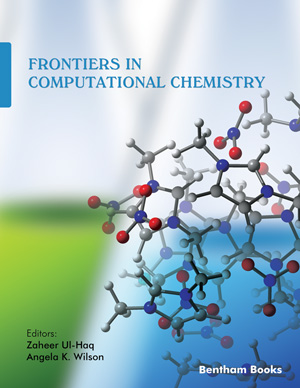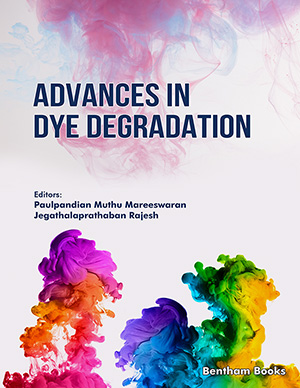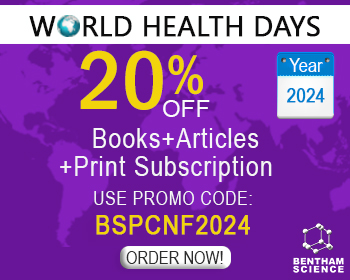Abstract
The evidence seems to be growing in favor of the stem cell theory of cancer with the emergence of studies demonstrating the parallel mechanisms of self renewing pathways in stem cells and particular subsets of cancer cells. The finding of leukemia stem cells and subsequently breast cancer stem cells (BCSC) further supports the concept. The importance of these findings lends itself to the selfrenewal properties of stem cells in addition to the survival characteristics of stem cells, mechanisms that will have to be overcome when creating treatment modalities. In particular, research has shown that stem cells and a specific type of stem cells, mesenchymal stem cells (MSC), have special drug effluxing properties and some interactions with particular cells of the immune system that may serve major roles in immunosuppresion and overall tumor cell survival. Furthermore, the recent discovery of epithelial to mesenchymal transition (EMT) has laid out a possible mechanism for tumor cells to lose particular phenotypic epithelial cell markers and gain phenotypic mesenchymal cell markers. This process is implicated in metastasis in addition to overall tumor survival and evasion of the immune system. This review examines the current understanding of how tumor cells evade the immune system, but will first explore stem cells, cancer stem cells, normal immune interaction with tumor cells, and EMT.
Keywords: Stem Cells, Cancer; Regulatory T-cells, Microenvironment, Mesenchymal Stem Cells
Current Medicinal Chemistry
Title:Can Breast Cancer Stem Cells Evade the Immune System?
Volume: 19 Issue: 35
Author(s): George R. Nahas, Shyam A. Patel, Sarah A. Bliss and Pranela Rameshwar
Affiliation:
Keywords: Stem Cells, Cancer; Regulatory T-cells, Microenvironment, Mesenchymal Stem Cells
Abstract: The evidence seems to be growing in favor of the stem cell theory of cancer with the emergence of studies demonstrating the parallel mechanisms of self renewing pathways in stem cells and particular subsets of cancer cells. The finding of leukemia stem cells and subsequently breast cancer stem cells (BCSC) further supports the concept. The importance of these findings lends itself to the selfrenewal properties of stem cells in addition to the survival characteristics of stem cells, mechanisms that will have to be overcome when creating treatment modalities. In particular, research has shown that stem cells and a specific type of stem cells, mesenchymal stem cells (MSC), have special drug effluxing properties and some interactions with particular cells of the immune system that may serve major roles in immunosuppresion and overall tumor cell survival. Furthermore, the recent discovery of epithelial to mesenchymal transition (EMT) has laid out a possible mechanism for tumor cells to lose particular phenotypic epithelial cell markers and gain phenotypic mesenchymal cell markers. This process is implicated in metastasis in addition to overall tumor survival and evasion of the immune system. This review examines the current understanding of how tumor cells evade the immune system, but will first explore stem cells, cancer stem cells, normal immune interaction with tumor cells, and EMT.
Export Options
About this article
Cite this article as:
R. Nahas George, A. Patel Shyam, A. Bliss Sarah and Rameshwar Pranela, Can Breast Cancer Stem Cells Evade the Immune System?, Current Medicinal Chemistry 2012; 19 (35) . https://dx.doi.org/10.2174/0929867311209066036
| DOI https://dx.doi.org/10.2174/0929867311209066036 |
Print ISSN 0929-8673 |
| Publisher Name Bentham Science Publisher |
Online ISSN 1875-533X |
Call for Papers in Thematic Issues
Advances in Medicinal Chemistry: From Cancer to Chronic Diseases.
The broad spectrum of the issue will provide a comprehensive overview of emerging trends, novel therapeutic interventions, and translational insights that impact modern medicine. The primary focus will be diseases of global concern, including cancer, chronic pain, metabolic disorders, and autoimmune conditions, providing a broad overview of the advancements in ...read more
Cellular and Molecular Mechanisms of Non-Infectious Inflammatory Diseases: Focus on Clinical Implications
The Special Issue covers the results of the studies on cellular and molecular mechanisms of non-infectious inflammatory diseases, in particular, autoimmune rheumatic diseases, atherosclerotic cardiovascular disease and other age-related disorders such as type II diabetes, cancer, neurodegenerative disorders, etc. Review and research articles as well as methodology papers that summarize ...read more
Chalcogen-modified nucleic acid analogues
Chalcogen-modified nucleosides, nucleotides and oligonucleotides have been of great interest to scientific research for many years. The replacement of oxygen in the nucleobase, sugar or phosphate backbone by chalcogen atoms (sulfur, selenium, tellurium) gives these biomolecules unique properties resulting from their altered physical and chemical properties. The continuing interest in ...read more
Current advances in inherited cardiomyopathy
Describe in detail all novel advances in multimodality imaging related to inherited cardiomyopathy diagnosis and prognosis. Shed light to deeper phenotypic characterization. Acknowledge recent advances in genetics, genomics and precision medicineread more
 153
153
- Author Guidelines
- Graphical Abstracts
- Fabricating and Stating False Information
- Research Misconduct
- Post Publication Discussions and Corrections
- Publishing Ethics and Rectitude
- Increase Visibility of Your Article
- Archiving Policies
- Peer Review Workflow
- Order Your Article Before Print
- Promote Your Article
- Manuscript Transfer Facility
- Editorial Policies
- Allegations from Whistleblowers
- Announcements
Related Articles
-
Aging and Inflammation: Etiological Culprits of Cancer
Current Aging Science Chemokines and Their Receptors: Potential Therapeutic Targets for Bone Cancer Pain
Current Pharmaceutical Design EDITORIAL (Hot Topic: “Signal Transduction and Response to Anti-Cancer Therapy”)
Current Signal Transduction Therapy Lymphatics and Inflammation
Current Medicinal Chemistry Endogenous Chemical Mediators in Anti-Inflammation and Pro-Resolution
Current Medicinal Chemistry - Anti-Inflammatory & Anti-Allergy Agents Development and Application of Fourier-Transform Infrared Chemical Imaging of Tumour in Human Tissue
Current Medicinal Chemistry Glucose Blood Levels as a Therapeutic Target in Acute Ischaemic Stroke Setting
Current Topics in Medicinal Chemistry Mucosal Immunisation: Adjuvants and Delivery Systems
Current Drug Delivery Recent Trends of Chalcones Potentialities as Antiproliferative and Antiresistance Agents
Anti-Cancer Agents in Medicinal Chemistry Molecular Modeling Based Synthesis and Evaluation of <i>In vitro</i> Anticancer Activity of Indolyl Chalcones
Current Topics in Medicinal Chemistry Patent Selections :
Recent Patents on Biomarkers Signal Pathways Mediating Antidepressant and Antipsychotic Drugs on Neuronal Cell Survival
Current Medicinal Chemistry - Central Nervous System Agents Can Targeted Therapy be Successful without Metronomic Scheduling ?
Current Topics in Medicinal Chemistry The Potential Therapeutic Value of Renin-Angiotensin System Inhibitors in the Treatment of Colorectal Cancer
Current Pharmaceutical Design Phosphonium Salt Displays Cytotoxic Effects Against Human Cancer Cell Lines
Anti-Cancer Agents in Medicinal Chemistry Defensins and Other Biocidal Proteins from Bean Seeds with Medicinal Activities
Current Medicinal Chemistry Investigating ABCB1-Mediated Drug-Drug Interactions: Considerations for In vitro and In vivo Assay Design
Current Drug Metabolism An Update on Disease Modifying Antirheumatic Drugs
Inflammation & Allergy - Drug Targets (Discontinued) γ-Hydroxybutenolide Containing Marine Natural Products and Their Synthesis: A Review
Current Organic Chemistry Detection of Predictive Markers for Therapeutic Stratification of Salivary Glands Tumors
Current Drug Targets























